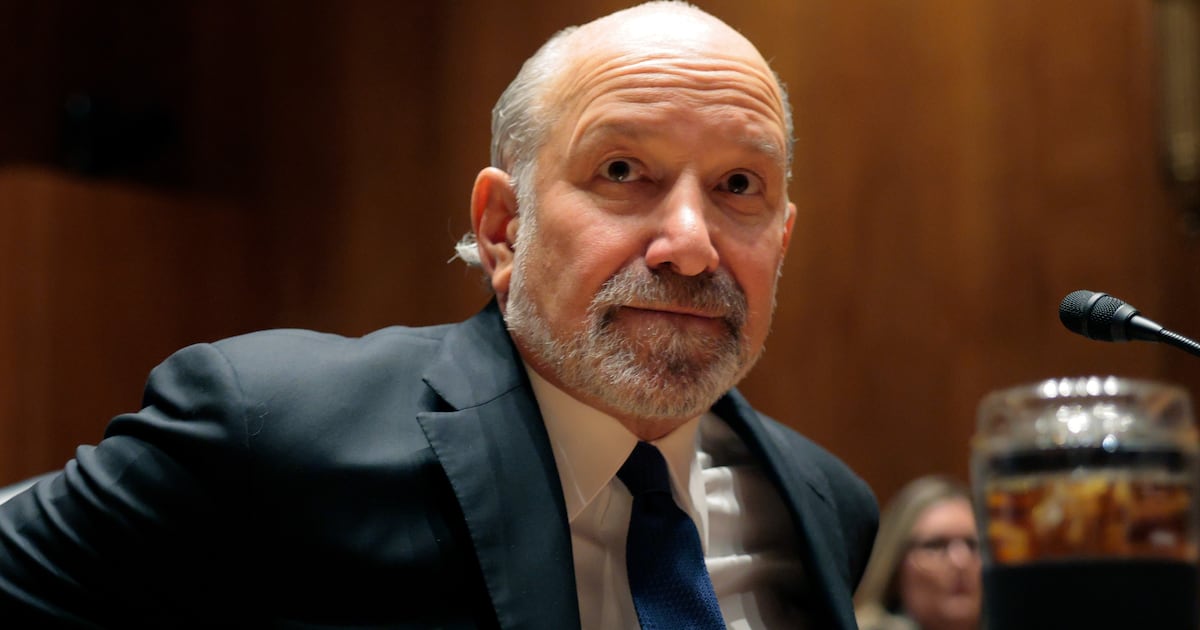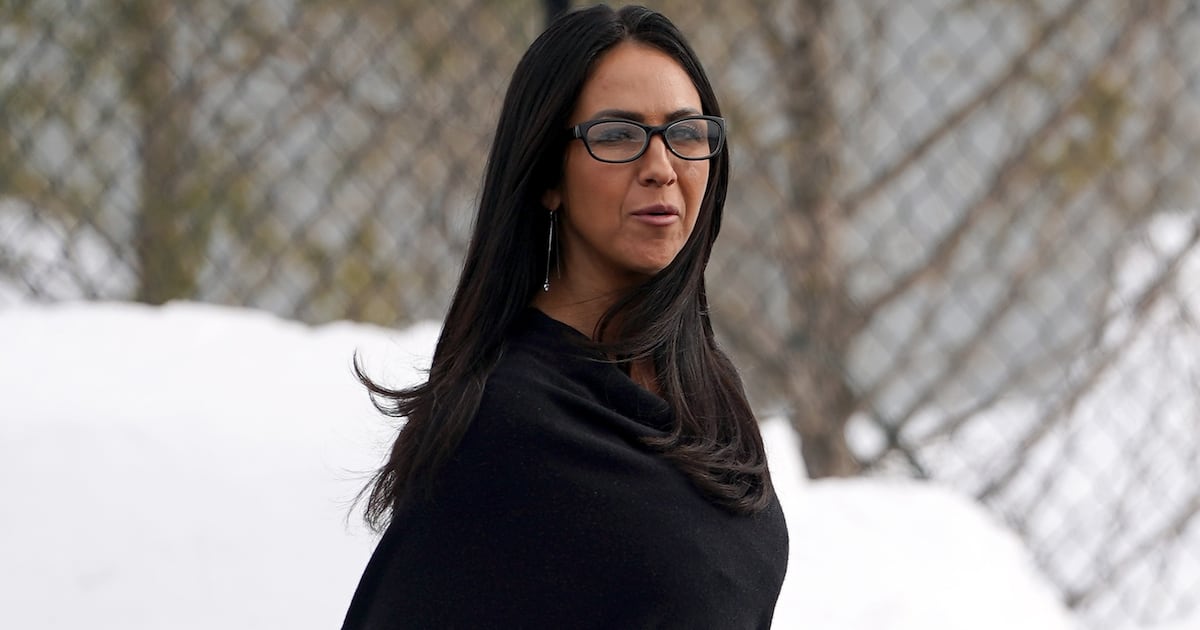It’s not just former Vice President Joe Biden. And Sen. Elizabeth Warren. And Mayor Pete. In New Hampshire, Sen. Bernie Sanders’ latest threat may come from another direction entirely: an emerging “outsider” tier.
In 2016, Sanders swept the first-in-the-nation primary against Hillary Clinton by a large majority, due in part to his popularity with young and independent voters alike. Now, as he maintains a narrow lead in the current top tier, it’s two lower-polling contenders that could poke holes in the powerful coalition Sanders once relied on: Rep. Tulsi Gabbard and Andrew Yang.
At first glance, Gabbard, the Hawaii Democrat who’s long and famously sparred with party figures, and Yang, the firebrand entrepreneur from New York, don’t appear to pose an immediate threat to Sanders, who earns 19 percent of support. Together, they barely crack half of that. And in the momentum primary, the early state energy has been with Buttigieg, the millennial South Bend mayor, and Warren, who hails from the state next door.
But perhaps more than his closest, high-polling rivals, Gabbard and Yang’s increasing ability to attack young and independent voters could help halt Sanders from achieving what he pulled off in 2016, when he earned 60 percent of the vote in a two-way race against Clinton.
“It sounds like there’s some overlap here,” Suffolk University pollster David Paleologos told The Daily Beast about the trio.
Gabbard has made New Hampshire her top priority in recent days. During a town hall event in Rochester, she suggested that she will be practically living in the state until the Feb. 11 primary. So far, she’s done more events than other Democratic contender, totaling 50 since late June, according to a tracker from New Hampshire Public Radio.
“We had a town hall in Rochester and then in Gilford right before the storm hit and people said, ‘You must be getting out of town.’ It was like, ‘Nope, we’re here for the duration,’” Gabbard told the local news outlet WMUR.
The move is not entirely uncommon in cycles past. In 2011, Jon Huntsman essentially camped out in New Hampshire during the Republican presidential primary, holding more than 100 events. Though he came up short, finishing in third place, Gabbard is hoping for a rosier outcome, even saying she would forgo the upcoming Democratic debate in Los Angeles, even if she qualified, to spend part of her time with Granite State voters. (She ultimately did not make the cut).
Gabbard is hoping that her increased facetime in the state—recently courting a broad coalition of potential supporters not unlike Sanders’ own in 2016, which includes both Democrats and Republicans—will help propel her to a top finish. But it’s her increased focus and appeal to independents that could be a warning sign for the Vermont senator. In the last election, Sanders won 73 percent of that bloc in the state over Clinton’s 25 percent, which has an open primary.
Now, those trend lines may be shifting, pollsters said.
“A lot of independents like Gabbard,” Paleologos said. “These are data points that are very much worth looking at.”
Indeed, Gabbard receives five times as much support among independents as she does among Democrats, according to the Suffolk University survey, conducted in November. The Hawaii Democrat earns 10 percent of support among independent voters, compared to 2 percent among registered Democrats.
A separate Quinnipiac University poll also conducted in November found that Gabbard is the first choice for 10 percent of voters who are independent. In addition, she is at 9 percent with those who identify as moderate or conservative.
There’s also the ideological draw. Gabbard occupies similar outsider threads to Sanders, and her campaign has used Clinton as a way to test the lingering strength of the anti-Hillary sentiment. After endorsing Sanders in 2016, the congresswoman has spent much of her own presidential bid railing against Clinton, challenging the former Democratic nominee primarily over foreign policy after Clinton insinuated that Gabbard is being groomed for a third-party bid, which she has repeatedly turned down.
Gabbard’s campaign did not immediately return a request for comment.
With Yang, the possible complications for Sanders’ bid are even more stark.
“People who like Sanders also happen to be favorable towards Yang,” Steve Koczela, a pollster for the MassINC Polling group, which conducts WBUR surveys in New Hampshire.
The 44-year-old former entrepreneur has taken nearly two dozen trips to New Hampshire since launching his campaign in November 2017. Earlier this month, he opened a new field office in Manchester, the political nervous system of the state. And one of his top advisers, Steve Marchand, has a direct connection to all things NH: having served as mayor of Portsmouth and having ran, unsuccessfully, for governor in 2018. He also worked on Sanders’ state campaign in 2016, where he helped court young voters in the neighboring college town of Durham.
“In the poll that we just completed both Yang and Sanders were both the strongest by far among young voters,” Koczela said.
In the latest WBUR poll, 60 percent of voters between ages 18-29 view Yang favorably, while 72 percent of voters in the same age range have a favorable rating of Sanders.
Team Yang doesn’t necessarily see his campaign as chipping away at Sanders’ support base (though one campaign insider conceded privately “it’s certainly an interesting way to look at it”), officials believe his non-traditional message is what has helped him inch up to sixth place, well ahead of others in the lower-tier
“What’s really appealing to New Hampshire voters is not only the outsider effect, but Andrew Yang is not a politician,” one Yang official said, unintentionally mimicking one of Sanders’ supporters own cases for their preferred candidate.
“Andrew’s been to the state almost two dozen times,” the insider said. “In New Hampshire a large part of it is retail politics. The other part is when they listen to his ideas and when they speak they see something different from the rest of the field.”
While Yang is at just 4.7 percent in New Hampshire averages, following where his supporters could turn is critical, pollsters agreed. With Sanders at 19 percent, he’s followed closely by Buttigieg at 17.7 percent, Biden at 14.3 percent, and Warren at 13.3 percent.
“The several important points that could be the difference between winning or losing New Hampshire could be Yang’s,” Paleologos said.






